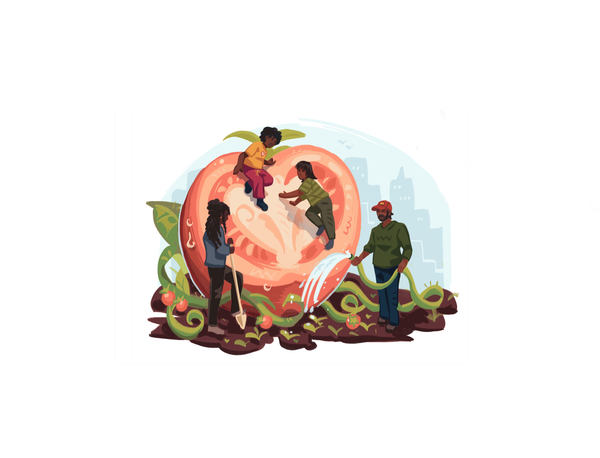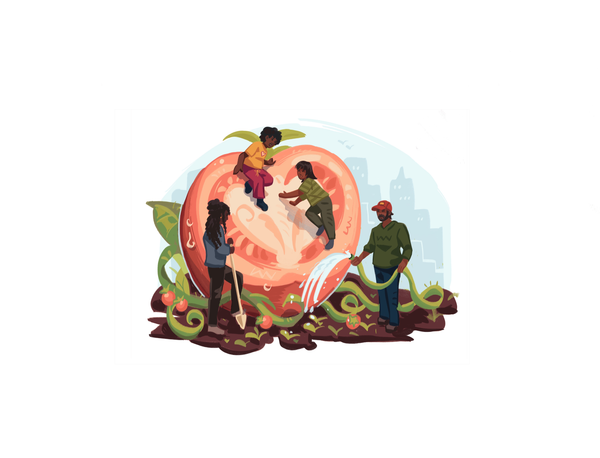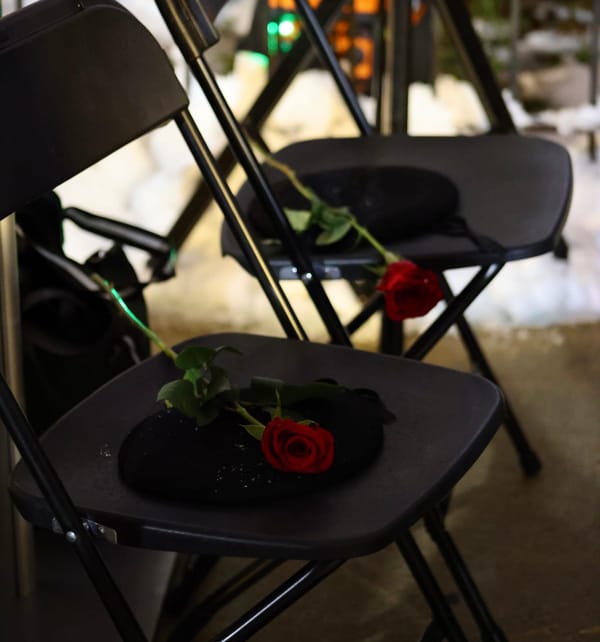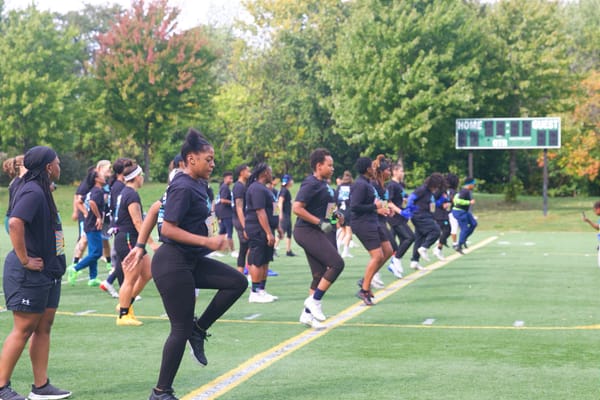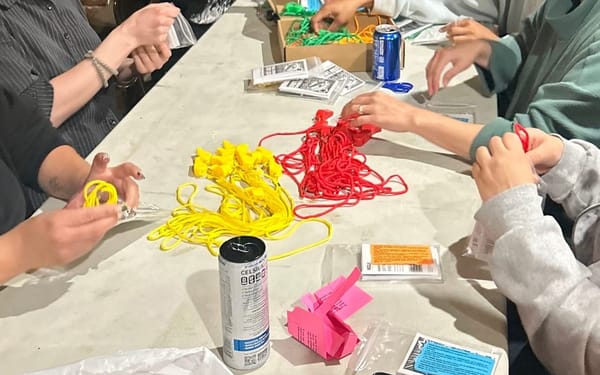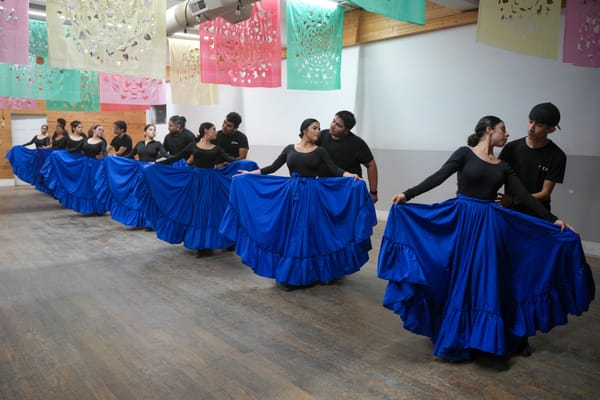Eating Our Way Home: Addis Cafe
Part one of a series featuring food spaces that feel like home, this cafe thrives at the intersection of Ethiopian tradition and community turned family.
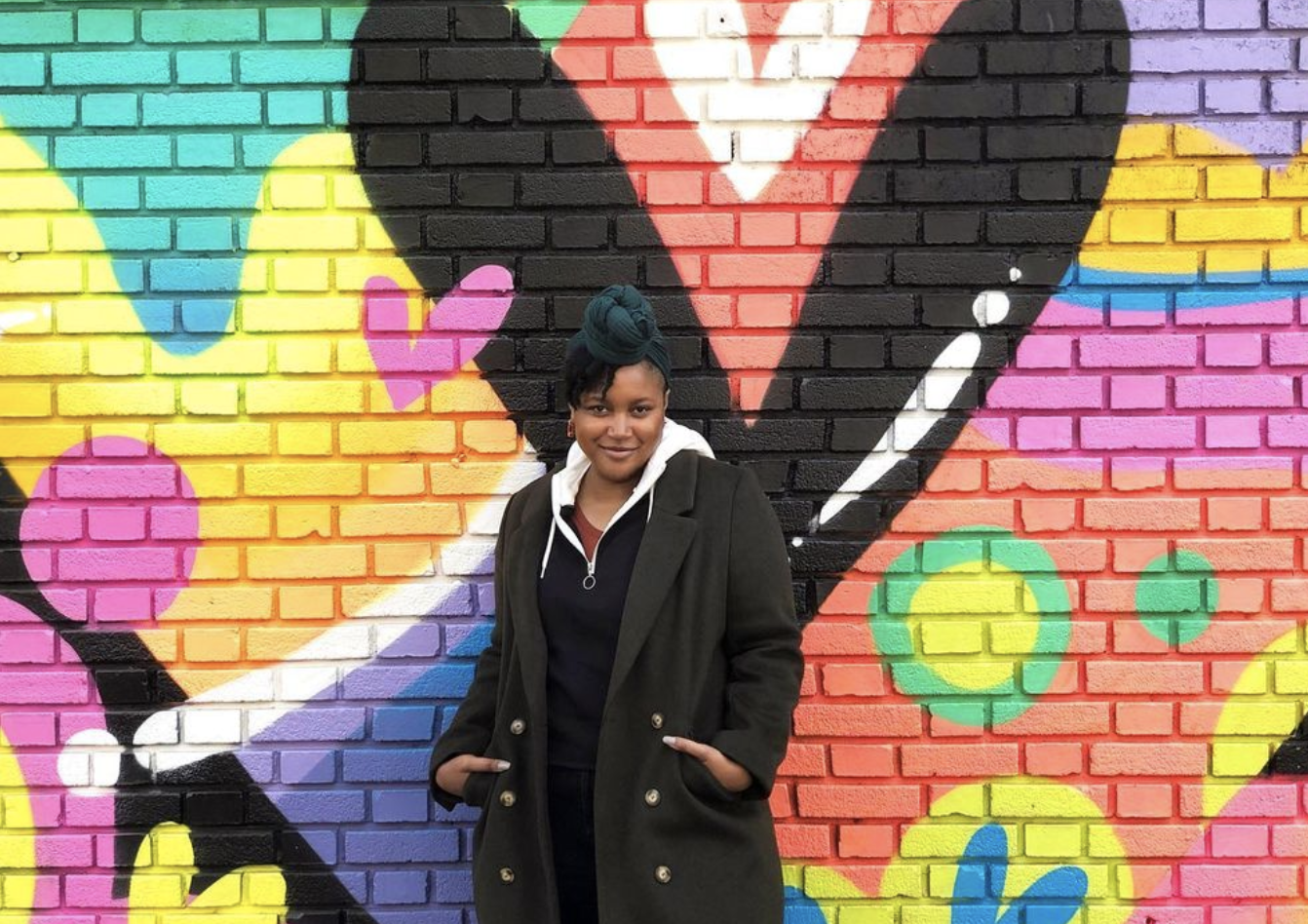
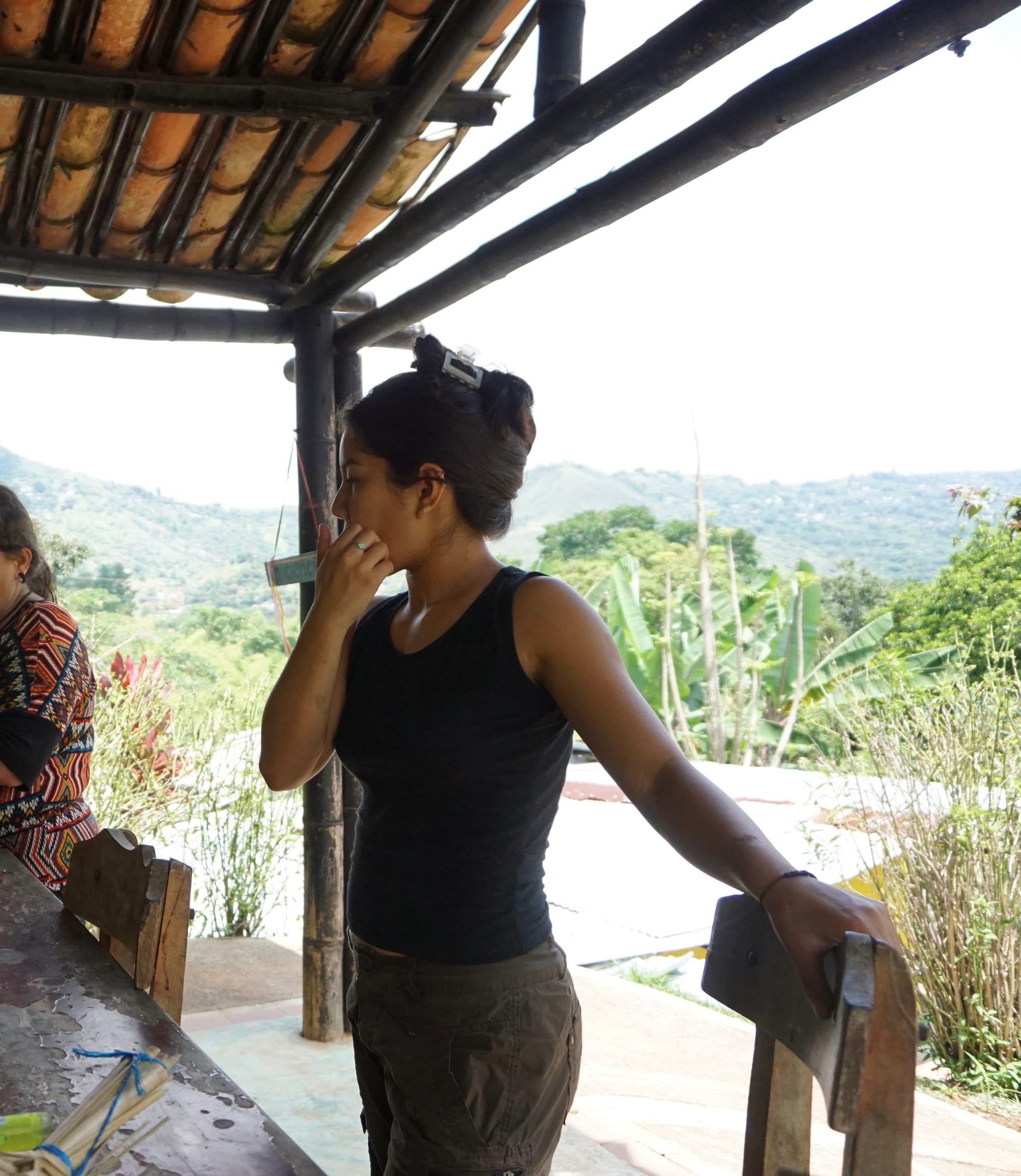
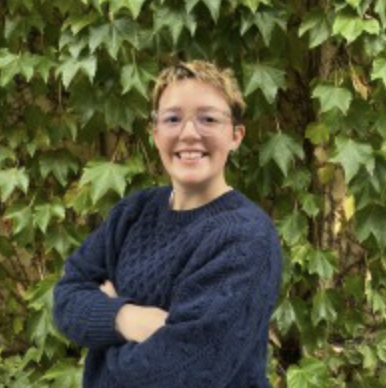
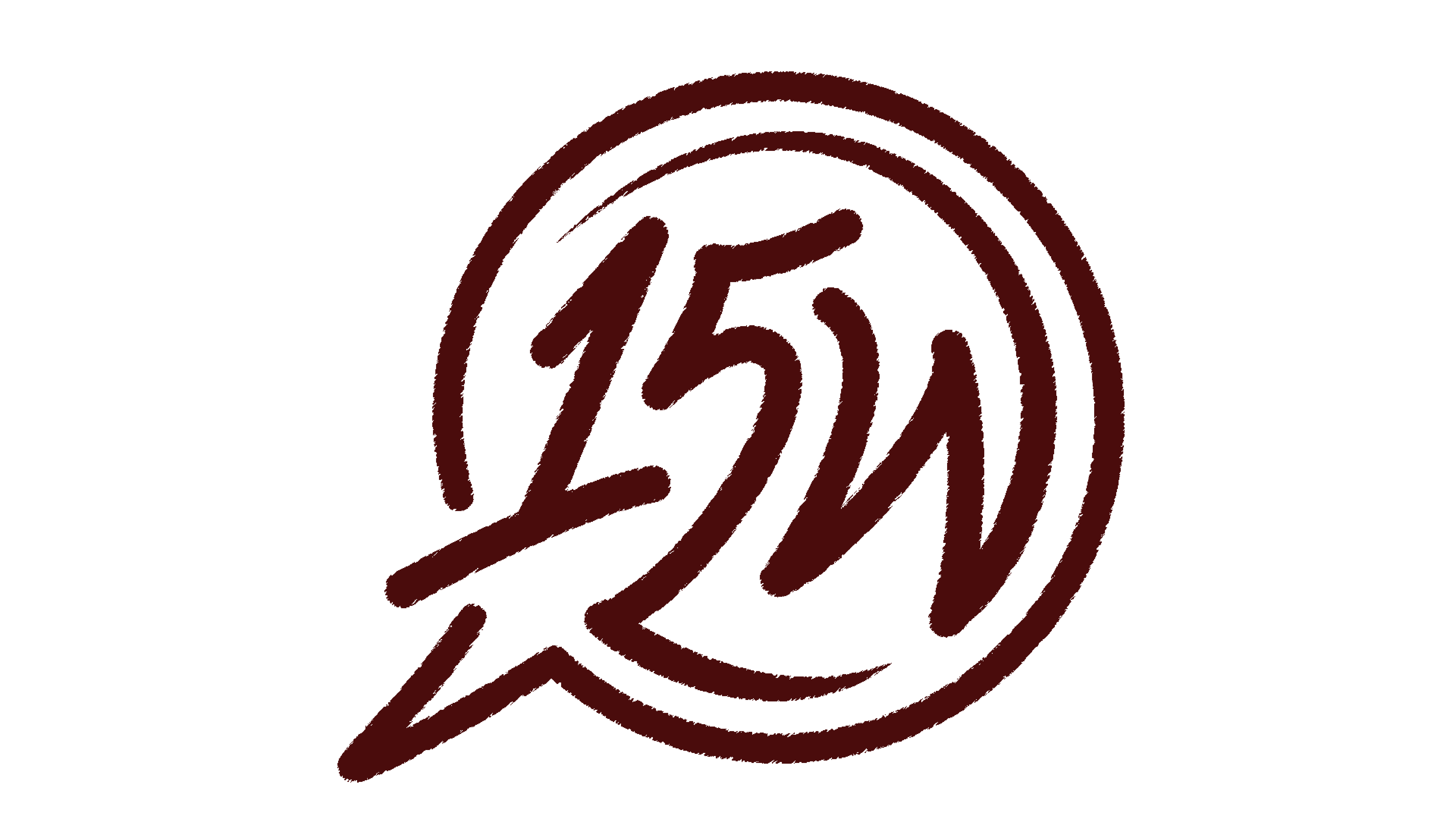
Part one of a series featuring food spaces that feel like home, this cafe thrives at the intersection of Ethiopian tradition and community turned family.



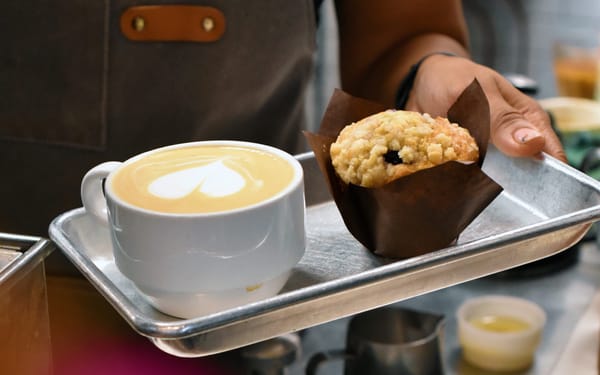
Kalkidan “Kalki” Tesfaye has quietly built one of the West suburbs' most magnetic third spaces. With Addis Cafe, she presents a radical proposition: a coffee shop that functions less like a business and more like an extension of her living room. Like everything Tesfaye does, the space is, first and foremost, about connection. “Everybody's welcome,” she says, settling onto a plush leather couch with a cortado (her favorite) and that signature smile that makes strangers feel like family.
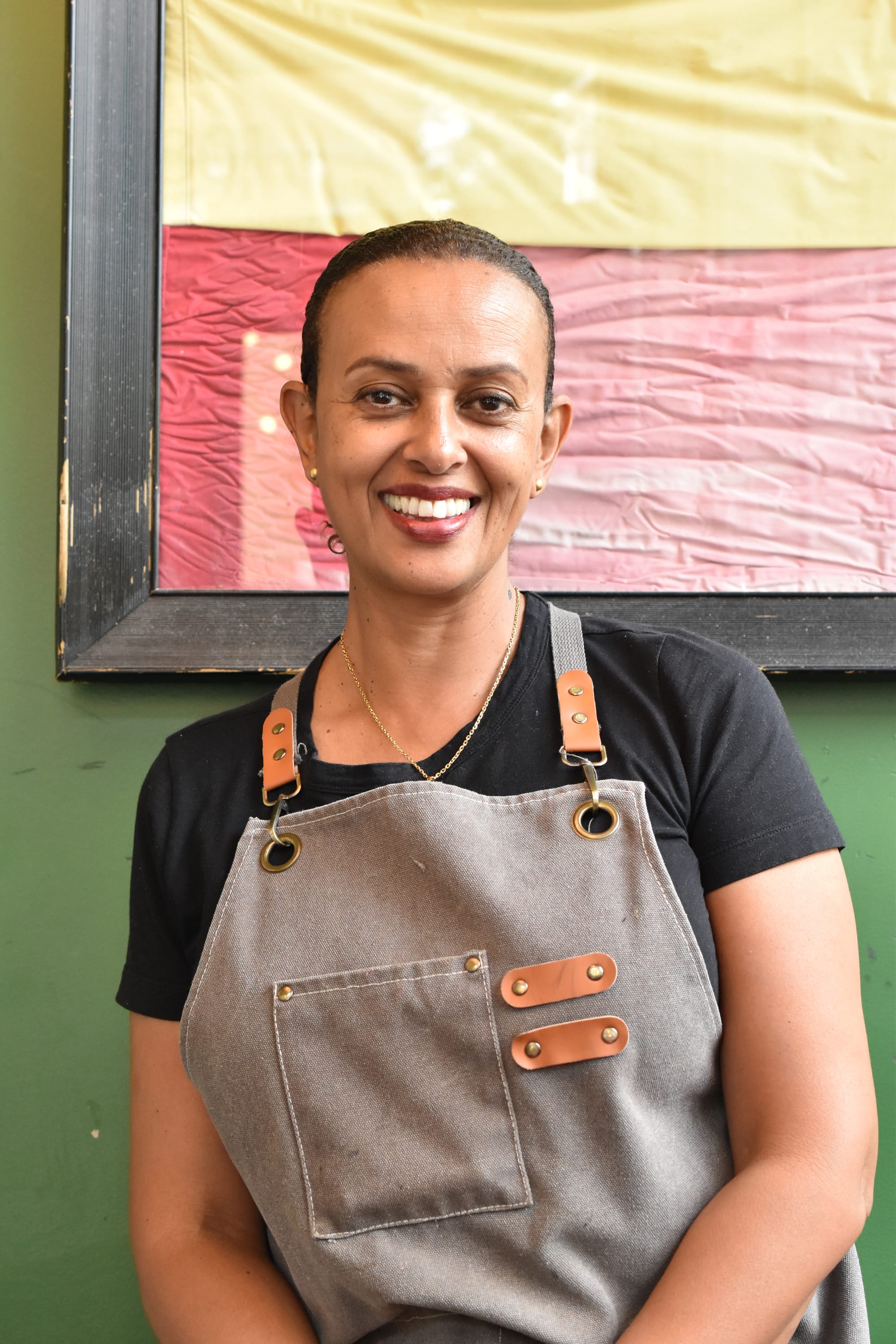
The cafe follows a philosophy that's both simple and subversive in an era of laptop farms and grab-and-go culture. She's created something that feels increasingly rare—a place where world music drifts through conversations, where the owner joins you on the couch, where the boundaries between host and guest intentionally blur.

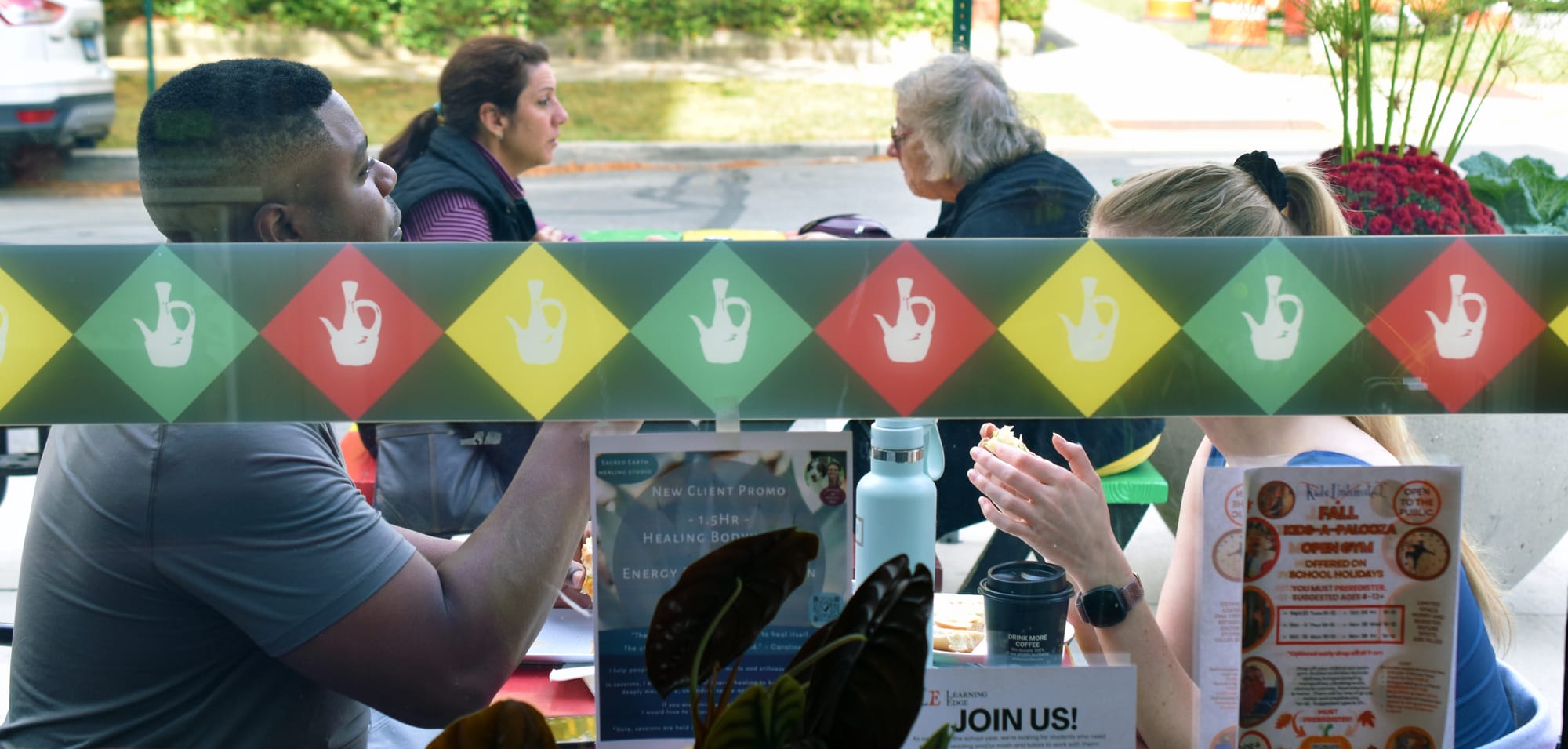
[LEFT] Kalki and her favorite drink (The Cortado).[RIGHT] Customers dine outside. | NaBeela Washington/15 West
“Sometimes people don't get it,” she says of her approach. “This country is just ‘run run run’ … you can’t even enjoy the taste of coffee”. But that's not what Addis is about.
What was your professional background before the cafe?
KT: I studied architecture. What I loved about it was the creating part, right? But I don't like sitting in the office. My brother and I had an Ethiopian restaurant [Addis Restaurant] in Berkeley for 11 years. I was born in Ethiopia, then moved to California in my sophomore year of high school. I went to high school in Oakland and later college in Berkeley, all in the Bay Area.
Why did you start this cafe?
KT: I moved from California, and I was looking for something to do, and I've always loved coffee. 10 years later, we're here. I wanted something for my kids, to have that same experience I had—a diverse community where they feel like they don't stick out, feeling accepted.
What makes Addis unique?
KT: Our customers are like a whole world in one space. On any given day, you'll see people from all backgrounds, hear different languages, and sense that everyone feels comfortable here. It's very diverse. Even our music reflects that; we play world music, American jazz, old school soul, and music from all over Africa and South America.
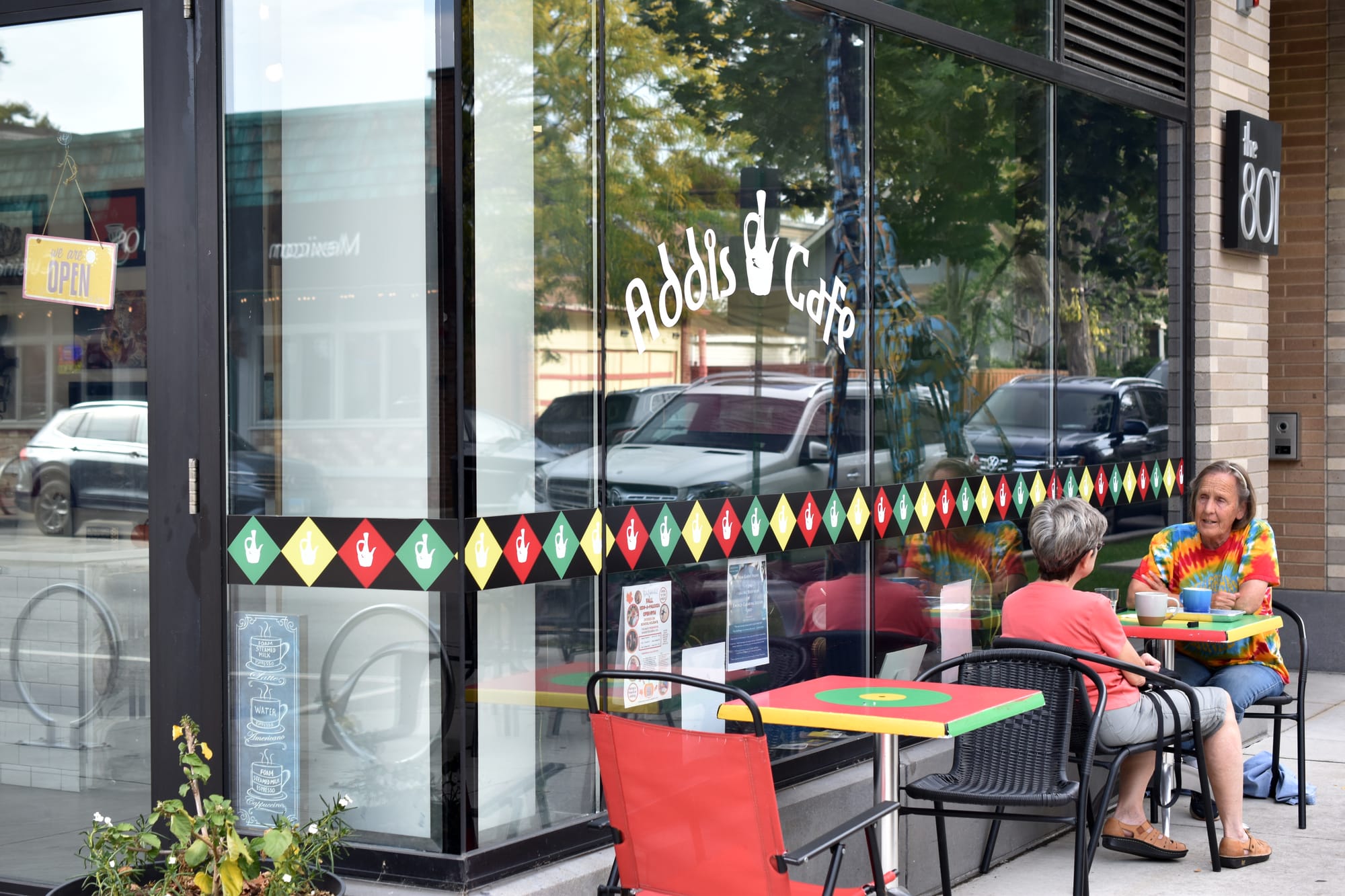
The coffee shop, or any service industry, should be about what you serve, not just ‘coffee’, [and] genuine connection and care. We make everything from scratch here [like pour-over Ethiopian coffee, corn-based waffles, or chai]. It’s about serving quality things people enjoy, and also creating a place where everybody’s welcome.
How does this inform your approach to coffee?
KT: You're supposed to have a moment and enjoy the coffee smell, have a conversation. So because of that, we never, ever have coffee made. You have to order it, and wait for it. It forces you to have a moment. And you know, this whole country is just run, run, run. I don't think you even enjoy a sip of coffee, just drinking it, that you even know what you're drinking, right?
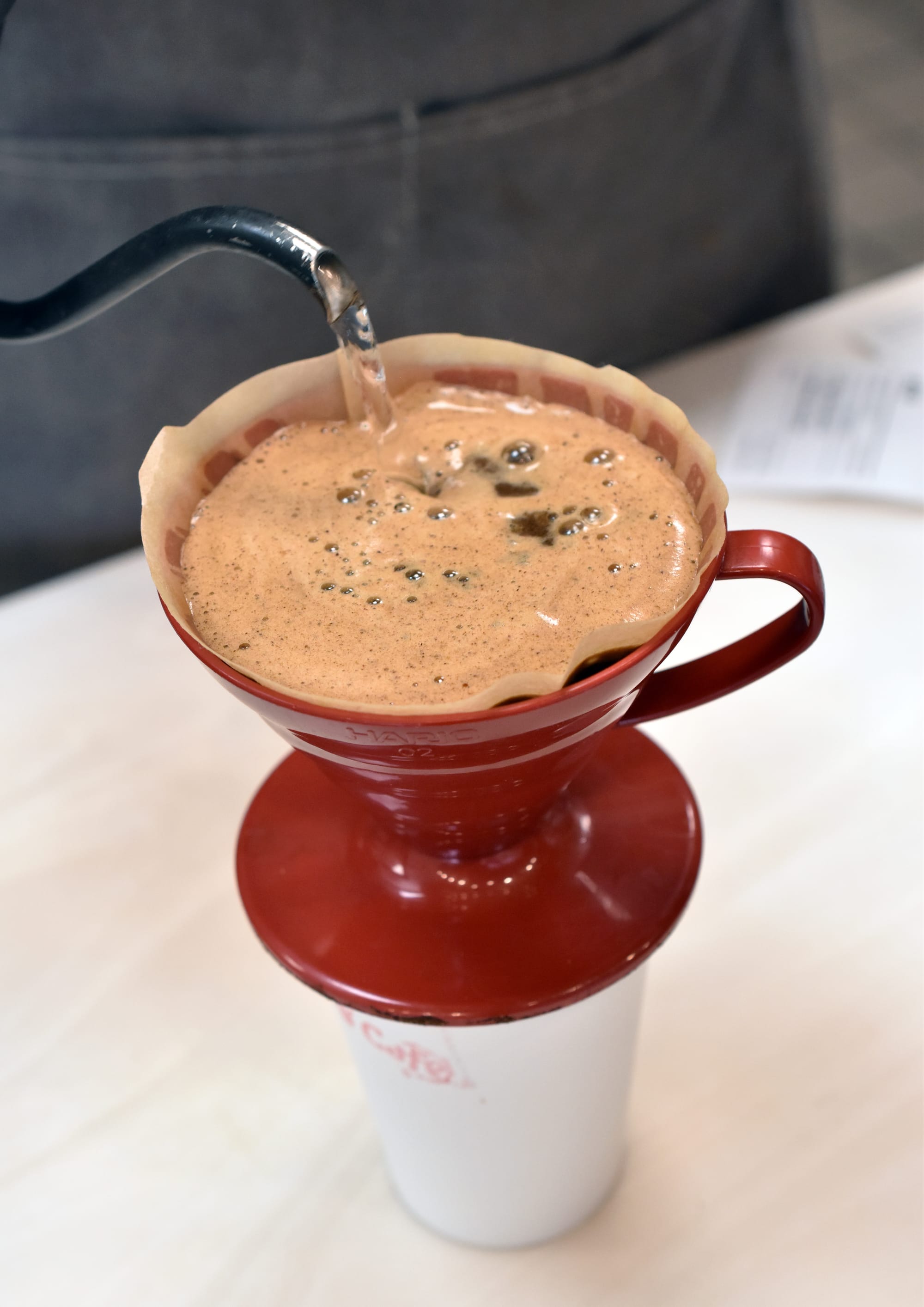
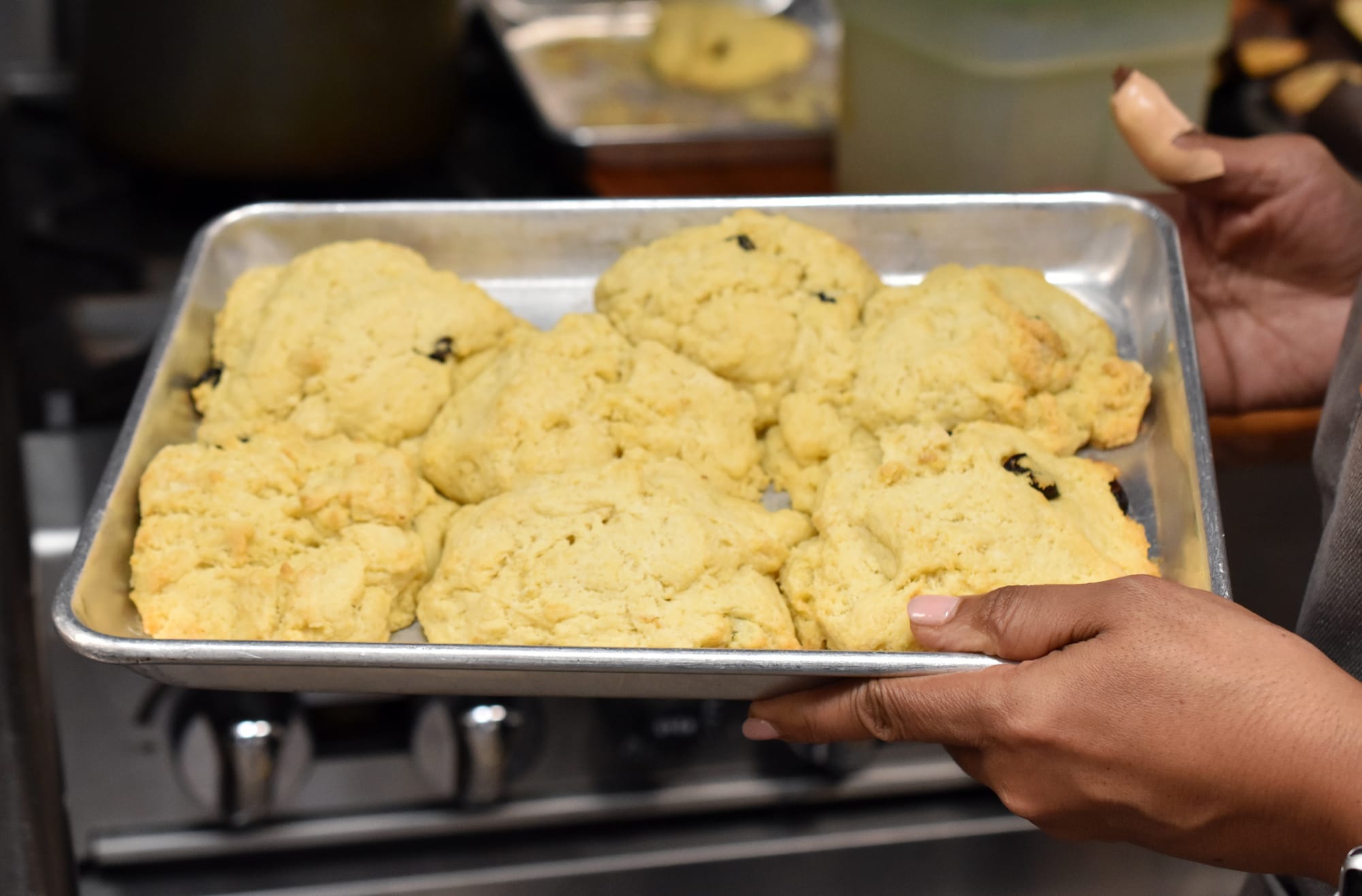
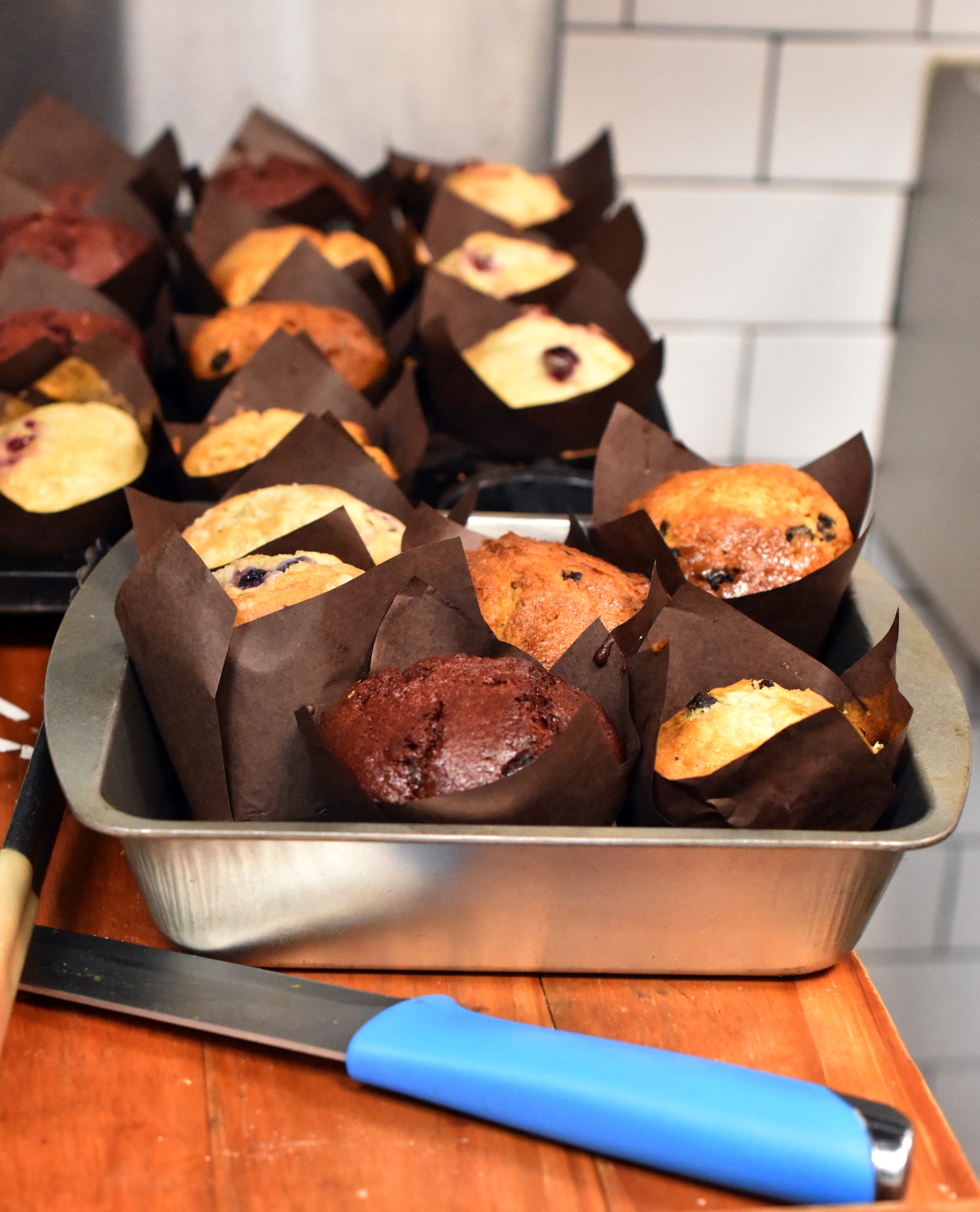
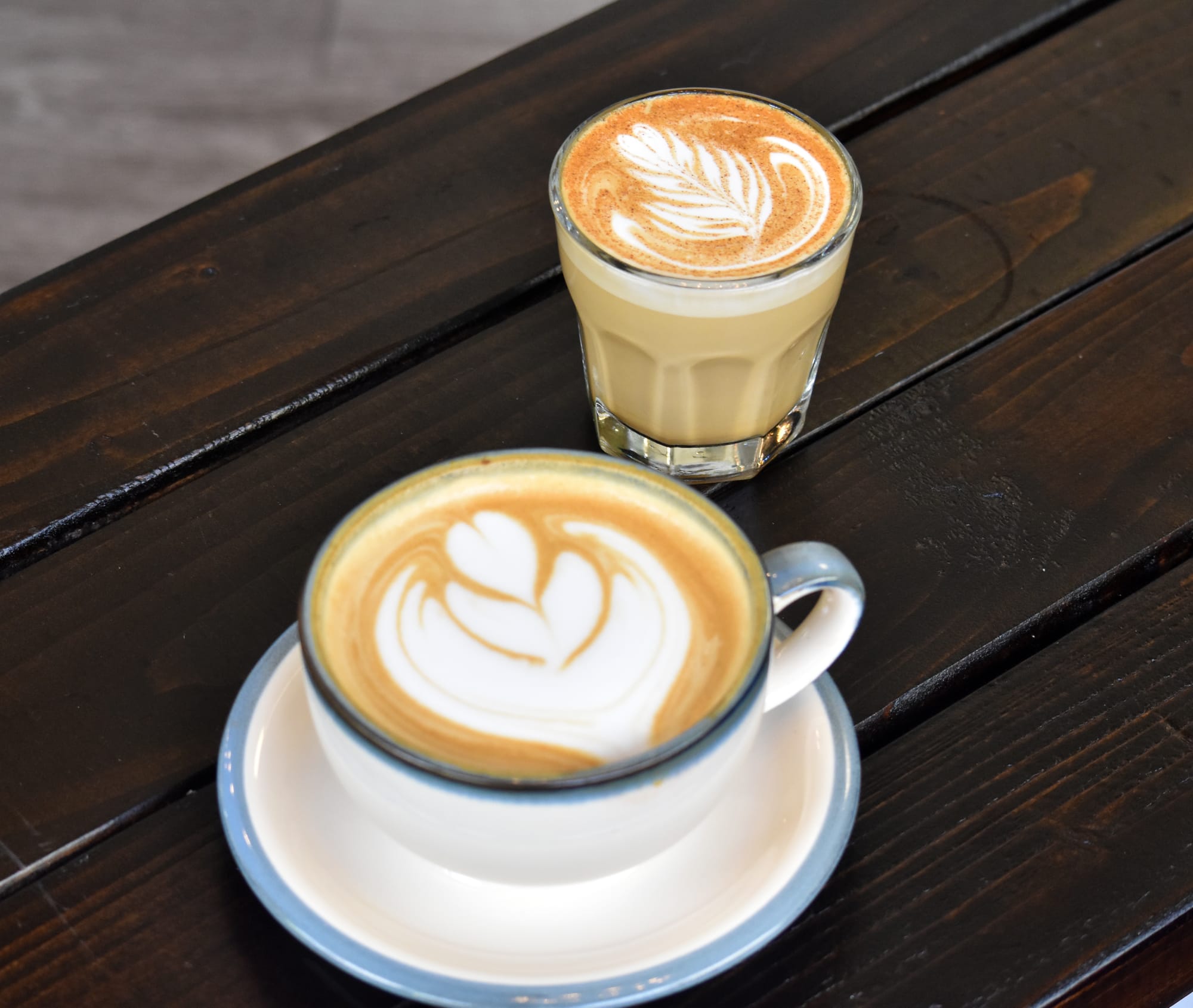
[TOP LEFT to BOTTOM RIGHT] Pour over coffee. Fresh scones. Fresh muffins. Salted Caramel Latte and Cortado. | NaBeela Washington/15 West
Describe the significance of coffee in Ethiopia?
KT: In Ethiopia, people buy the green beans. They wash it and roast it, and make the coffee right there. And right there, while people are reading, in the afternoon, this is the outlet for women ... They call their friends and neighbors while they're making the coffee, [and] they use it as therapy. They talk about their issues, their household stuff. While they're making the coffee and drinking it, by the time they go home, all that frustration is gone, and they're relieved, because [they] have somebody to talk to and let it out.
How do you create a welcoming space?
KT: I want people to just be comfortable and not have to worry about who they are or what language they speak. That is not allowed here. I want people to just come and enjoy the coffee, be comfortable, and go home. Be happy. It doesn't matter if you're homeless here; you can come sit here, have something.
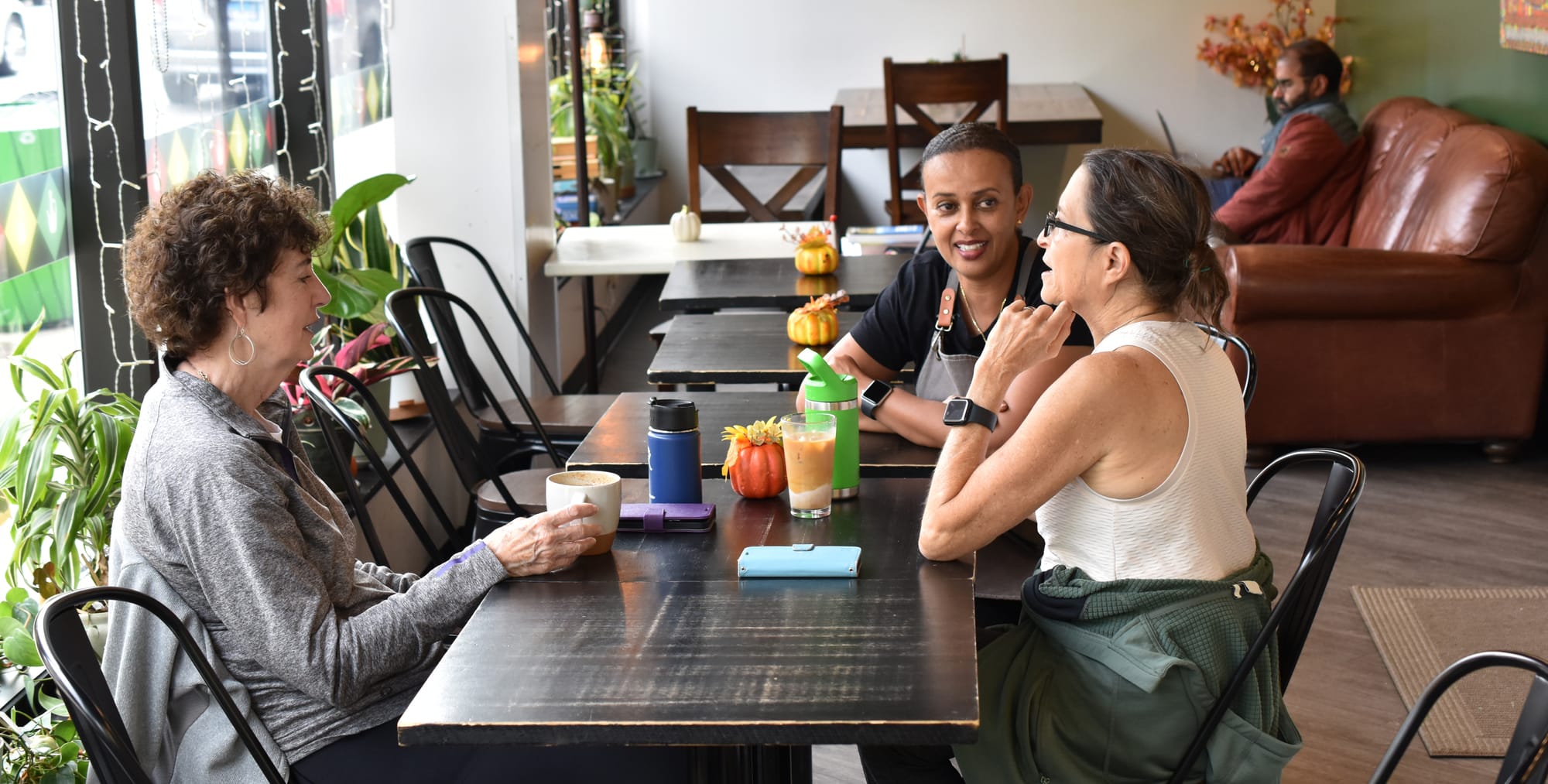
Kalki in conversation with regulars. | NaBeela Washington/15 West
What do you love most about running the cafe?
KT: I love coming here; my husband's so jealous. I tell him, the day I hate it, that’s the day I'm gonna let it go. I love the community. It's my happy space.
Not too many people go to work, and really like it, right? Just seeing people drinking your coffee, watching them take the first sip of it, it's very satisfying.
As if on cue, a regular walks in: another guest in Kalki’s living room. She waves him over. Mark VerHalen has been coming to Addis Cafe for four years. “This isn't just a coffee shop—it's a place where everybody seems to get along well with each other,” he tells me as Kalki works near the espresso machine. He pauses, watching her work. “She's created something special.”
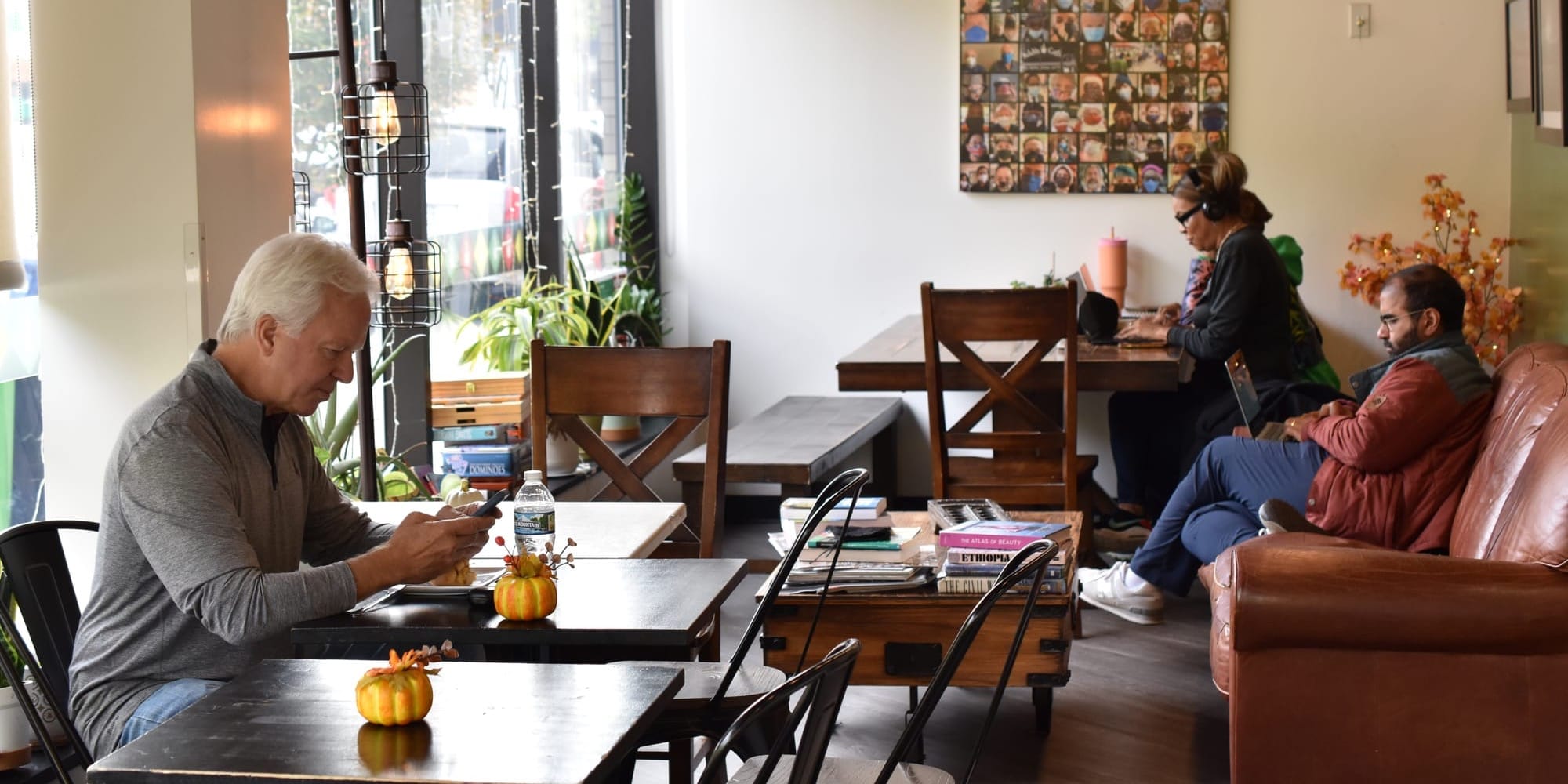
Whether you're drawn by their from-scratch recipes and Ethiopian-grown ingredients, Seattle-roasted espresso, the ginger turmeric tea, or simply the warmth of connection, Addis offers more than just a drink: it offers a place to belong.
*This piece was edited with support from Liana Ordonez and Gemma Mueller, part of 15 West’s Reporting/Editing Internship.


